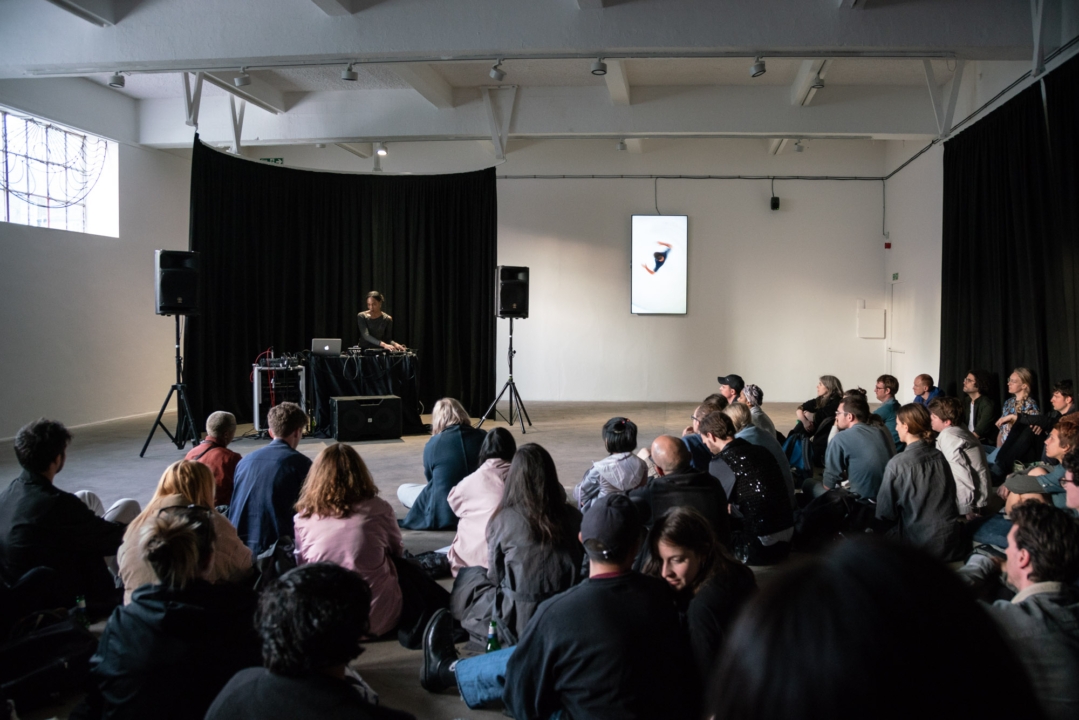Decolonial Summer School
Patricia Kaersenhout, Jeanette Ehlers, Charles Esche, Quinsy Gario, Nkisi
Event
25 – 27 June 2018
Various locations

Opening the university to life’s diversity and other knowledges, Walter Mignolo and Rolando Vázquez brought together students, activists, scholars and artists in the academic setting. Addressing the danger of the single story in the Modern/Colonial world order, the course invited to learn about the decolonial option. Participants and lecturers collectively explored creative alternatives to global (un)justice by critically engaging local histories to challenge global designs. The main question of the Summer School’s is: “What Does It Mean To Decolonize?” Additionally, the theme of this year’s school year was “Democracy & The Others of Europe”.
Since two years Vleeshal has also made a contribution to the Decolonial Summer School. This year its contribution consisted of a Public Program that took place in two different locations: a former dance studio and a pop stage called De Spot. The programme was developed in collaboration with University College Roosevelt (University of Utrecht) and the Centre for Global Studies and Humanities (Duke University)
COMPLETE PROGRAM
25.06.2018, 20:00-22:00
Program UCR
Location: Ballet studio Schuttershof – meeting point Vleeshal Markt (19:45)
Performance An act of reciprocity by Patricia Kaersenhout
Film Queen Mary Monologue by Jeanette Ehlers
26.06.2018, 20:00-22:00
Program Vleeshal/UCR
Location: Ballet studio Schuttershof – meeting point Vleeshal Markt (19:45)
Talk The Demodern Option by Charles Esche
Charles Esche gave a lecture with the title The Demodern Option: “The tools of decoloniality are being picking up and used as never before. They provide a means to address and change a present that has never abandoned colonialism. For the core spaces of colonial agency, decolonial thinking is a necessary but perhaps not sufficient process to fully embrace the consequences of the past. The demodern option is one suggestion for bringing the decolonial back to the western colonial heartland. It digs into the long trajectory of modernity and the shorter history of modernism to see what might be left of the modern's proclaimed emancipatory legacy if the grid of the modern-colonial matrix could be dismantled and ditched. This process is one that has much wider implications than art alone, but the contention of the talk is that art might be an appropriate place to start, especially as its modern traditions of avant-garde experimentation and liberal artistic experimentation are ripe for repurposing.”
Lecture performance by Quinsy Gario
During the Public Program Quinsy Gario gave a lecture performance, in which he used his performance PAPI=Poging andere politieke interventies (PAPI: Attempting an Other Political Intervention) from 2016 as a starting point. In this lecture performance, Gario tried to tackle the difference between political representation and liberation through politics. In the piece Gario looked at the potential of political participation of minoritized and marginalized racial and ethnic communities in the Kingdom of the Netherlands in particular and Europe in general. By detailing the intention of starting a political party a proposition towards political engagement through a critique of the political system was present. The piece sought to intersect Dutch Caribbean political liberation struggles, Patrice Lumumba's independence speech, Frantz Fanon's The Wretched of the Earth and the project of the European Union.
27.06.2018, 20:00-22:00
Program Vleeshal
Location: De Spot – meeting point Vleeshal Markt (19:45)
Sonic Lecture by Nkisi
On January 19, 2019, Paul Maheke’s solo exhibition A fire circle for a public hearing opened at Vleeshal, which was a coproduction with the Chisenhale Gallery in London. This immersive installation developed Maheke’s ongoing engagement with the potential of the body as an archive in order to address how history, memory and identity are formed and constituted. In this exhibition, the artist explored the tension between hypervisibility and erasure.
During Maheke’s Chisenhale show, Nkisi – who has a similar interest in the visible and invisible – presented a Sonic Lecture, which was presened again in Middelburg as a preview to Maheke’s show at Vleeshal.